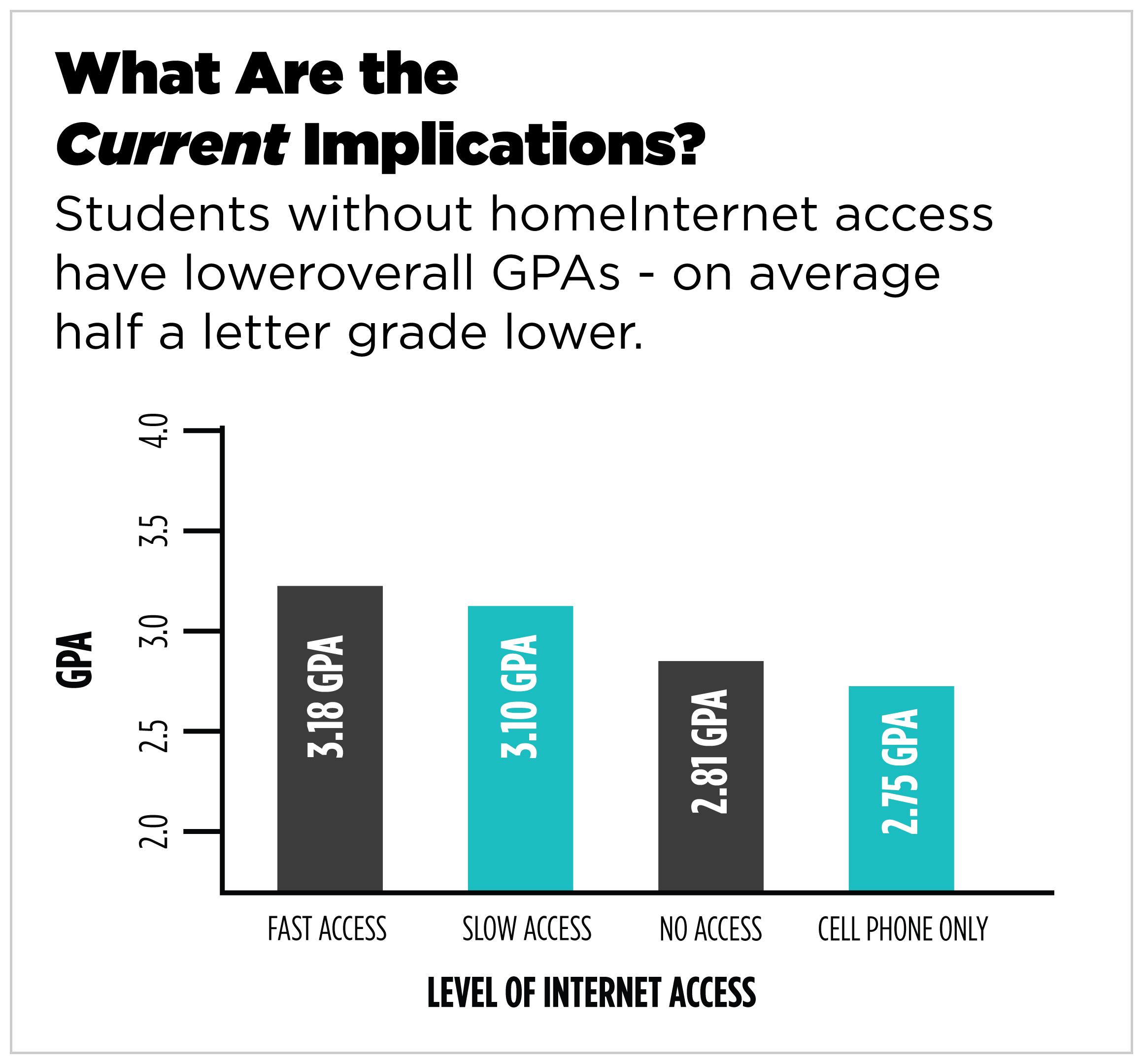When it comes to K-12 students, disparities in broadband Internet access have often been referred to as the “homework gap.” This lack of access diminishes the capacity of students to succeed in the knowledge and information-based economy of the 21st century. Research and education (R&E) networks are ideal catalysts to convene collaborations surrounding the innovative technologies required for expanding broadband accessibility. Many R&E networks have decades of experience in network operations and have built long-standing relationships with a broad landscape of community anchor institutions. In addition, these networks play a critical role in spreading awareness of the education digital divide to state and federal policy makers, support strong relationships with vendors in a centralized capacity, and foster public/private partnerships through the lens of a nonprofit.
The Quello Center at Michigan State University, in partnership with Merit Network and M-Lab, studied the consequences of poor and absent home broadband access for the academic achievement of students in rural Michigan school districts. Many students in rural areas do not have Internet or depend on cell phones for Internet access because they live in small towns, rural areas, and on farms that do not have an infrastructure for broadband. The aim of this study, which began in 2019, was to understand how home Internet access is related to students’ homework completion, digital skills, grades, standardized test scores, interest in postsecondary education, and career goals. This groundbreaking study reveals that the “homework gap” is part of a much broader “performance gap” with repercussions not only for school achievement but lifelong opportunities.
Findings show that a lack of broadband and dependence on cell phones for home Internet is leaving rural Michigan students behind. Students who do not have home Internet access perform lower on a range of metrics. These differences exist regardless of gender, race and ethnicity, parental income and education, and whether the student has an individualized education plan (IEP). Middle and high school students with access to high-speed Internet at home have more digital skills, higher grades, and perform better on standardized tests like the SAT.
Students who rely on a cell phone for Internet access outside of school experience gaps in performance that are as large or larger than those with no home Internet access. Unlike their peers, students who are dependent on a cell phone for Internet access outside of school, rely on smaller screens with slower devices, have access to content with fewer features, and need to monitor data caps and recharge prepaid phone plans.
This research substantiates that a lack of Internet access impedes the development of critical skills needed to competently participate in the digital economy. Consequently, entire regions that lack Internet access, either as a result of unaffordability, not knowing the benefits of connectivity or missing infrastructure, may be lastingly disadvantaged.
To learn more about the study or to access broadband-related resources, visit The Michigan Moonshot and the complete Quello Center K-12 Findings Report.

